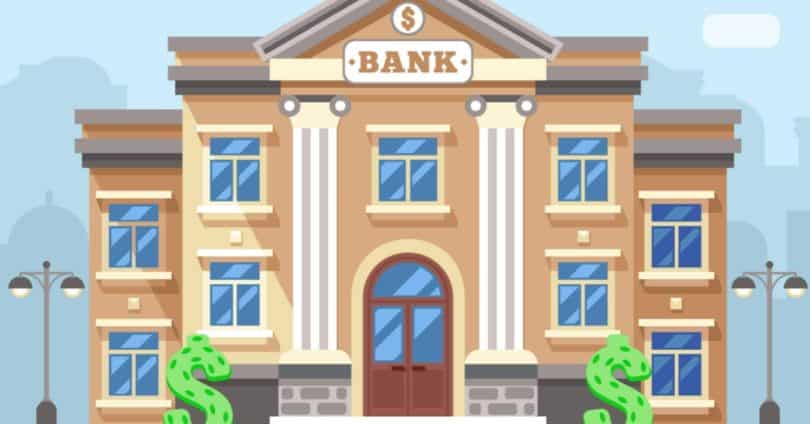A certificate of deposit (CD) is a bank or credit union product that pays a higher interest rate in exchange for the consumer agreeing to leave a lump-sum deposit untouched for a set length of time. Almost all consumer financial institutions provide CDs, albeit each bank decides the terms to give, how much higher the return will be compared to the bank’s savings and money market products, and what penalties it will impose for early withdrawal.
Certificates of Deposit: An Overview of it
The process of opening a CD is quite similar to that of opening a regular bank account. When you sign on the dotted line, you’re consenting to something different (even if that signature is now digital). After you’ve done your research and decided which CD(s) you’ll open, you’ll be locked into four things if you finish the process.
- The interest rate: Locked rates are advantageous because they provide a consistent and predictable return on your investment over a set length of time. The bank will not be able to adjust the rate later and therefore diminish your earnings. On the other hand, a fixed return could cost you if interest rates climb significantly later and you miss out on higher-paying CDs.
- The term: This is the amount of time you agree to keep your monies deposited in order to avoid incurring any penalties (e.g., six-month CD, one-year CD, 18-month CD, etc.) When your CD has fully matured and you can withdraw your funds without penalty, the period ends on the “maturity date.”
- The principal: This is the amount you agree to deposit when you open the CD, with the exception of some specialty CDs.
- The institution: The bank or credit union where you open your CD will decide on terms like early withdrawal penalties (EWPs) and whether your CD will be automatically reinvested if you don’t provide other instructions before it matures.
Once your CD is set up and financed, the bank or credit union will treat it like any other deposit account, with monthly or quarterly statement periods, paper or electronic statements, and interest payments sent to your CD balance, where the interest will compound.
Read more on what current account is here…
What is Certificate of Deposit and how it Works
Anyone who follows interest rates or business news, in general, understands that the Federal Reserve Board’s rate-setting decisions have a big impact on how much money savers can earn on their savings. This is because the Fed’s actions can have a direct impact on a bank’s costs and the rates. This is how it goes.
The Federal Open Market Committee (FOMC) of the Federal Reserve chooses whether to raise, reduce, or leave the federal funds rate unchanged every six to eight weeks.
This rate is the interest rate that banks pay to borrow money from the Federal Reserve. Banks have less motivation to court deposits from consumers when Fed money is cheap (i.e., the federal funds rate is low). When the federal funds rate is moderate or high, however, banks can perform better by offering consumers a competitive deposit rate.
The Federal Reserve cut its interest rate to the lowest level feasible, effectively zero, in December 2008 as a stimulus to help the US economy recover from the Great Recession. Even worse for savers, rates remained unchanged for the next seven years. Deposit rates of all kinds—savings, money market, and CDs—tanked during that time.
However, beginning in December 2015, the Fed began to gradually raise the federal funds rate in response to indicators of economic growth and strength in the United States. As a result, banks’ deposit interest rates increased, making top CD rates an appealing option for certain cash investments. The federal funds rate began to fall in the second half of 2019 and was subsequently cut to between 0% and 0.25 percent in March 2020 as an emergency measure to mitigate the impact of the 2020 economic crisis. CDs are currently a less appealing option for cash investors because of the reduced rates.
Do you want to know about different types of bank account, click here..
When Is It a Good Idea to Open a CD?
Certificates of deposit come in handy in a variety of scenarios. Perhaps you have funds that you don’t require right now but will require in the coming years, such as for a memorable vacation or the purchase of a new home, car, or boat. The stock market is often not regarded as an appropriate investment for such short-term purposes, as you could lose money in that time.
Alternatively, you may prefer to invest a portion of your money very carefully or avoid the risk and volatility of the stock and bond markets entirely. CDs don’t have the same growth potential as equities or debt investments, but they don’t have the same downside danger. Certificates of deposit are a good option for money that you want to be confident will grow in value, even if just a little.
For certain savers, one of the disadvantages of CDs can be a benefit. The set duration of a CD, as well as the penalty for early withdrawal, provides a deterrent to spending that normal savings and money market accounts do not.
Using CDs as an emergency fund is one way to do this. Because the quantity in the CD will never decrease, you may be sure you’ll always have enough reserves on hand in case of an emergency. And, while there may be a penalty if you had to withdraw cash early, the idea is that you would only do so in a true emergency, rather than for less pressing but appealing reasons. While the funds are invested, you will earn a higher return than if they were deposited in a savings or money market account.
Advantages of Certificate of Deposit
- Offers a higher rate than a savings or money market account
- Pays a guaranteed, predictable rate of return, avoiding the volatility and losses associated with stocks and bonds
- Is federally insured if opened with an FDIC bank or NCUA credit union
- Can help deter spending temptations because early withdrawals are subject to a penalty
Advantages of Certificate of Deposit
- Cannot be liquidated before maturity without incurring a penalty for early withdrawal.
- Earns a fixed rate of return regardless of whether interest rates rise throughout the period, which is often lower than stocks and bonds.
CONCLUSION
When looking for the best CD rates, it’s important to shop around because different financial institutions provide a surprising range of options. For example, your local bank may pay a pittance on even long-term CDs, whereas an internet bank or a local credit union may offer three to five times the national average. Meanwhile, special promotions with odd durations, such as 13 or 21 months, rather than the more regular terms based on three, six, or 18 months or full-year increments, provide some of the greatest rates.









